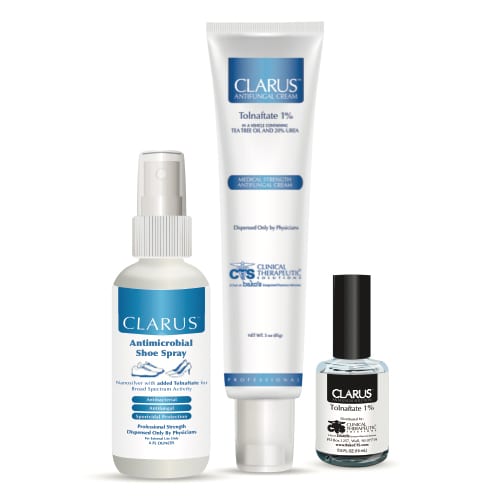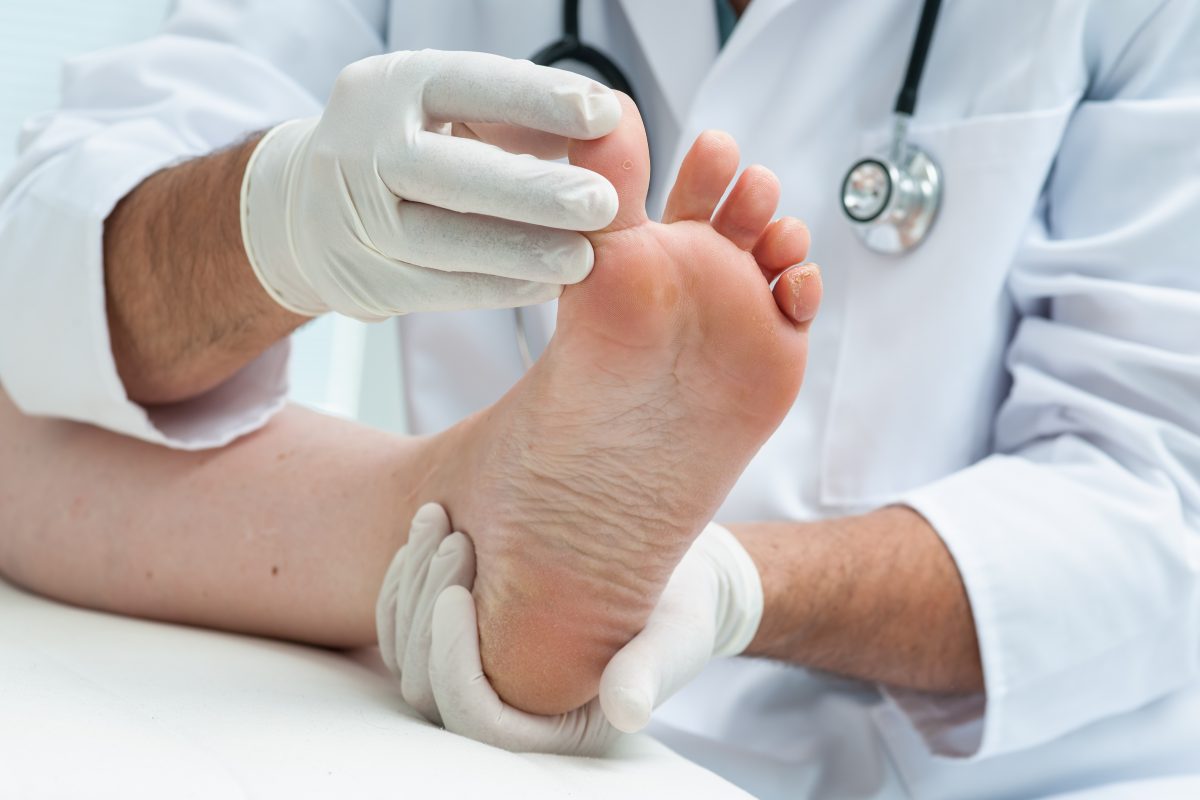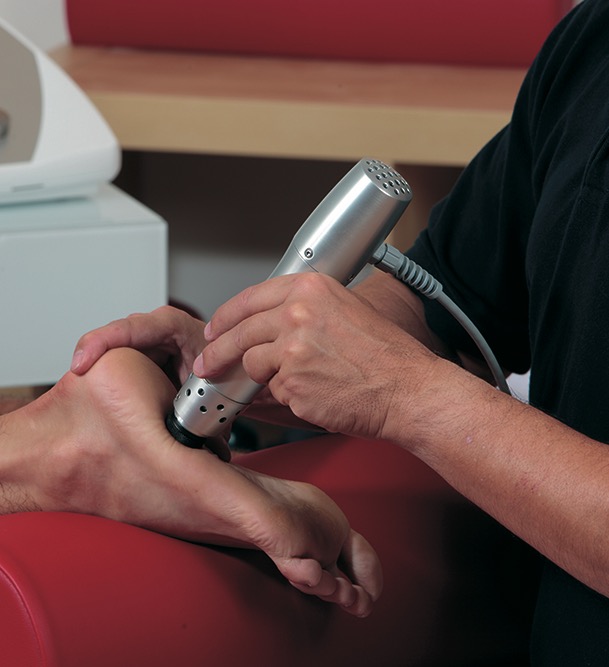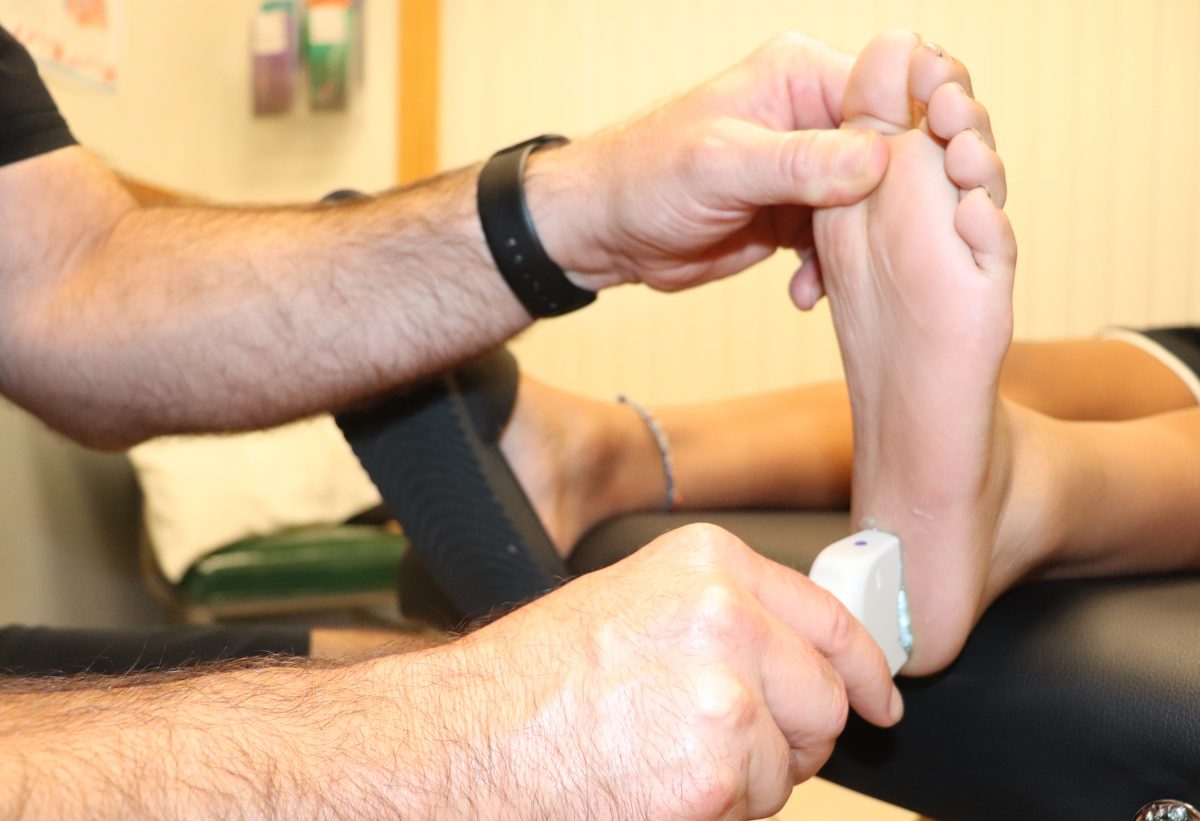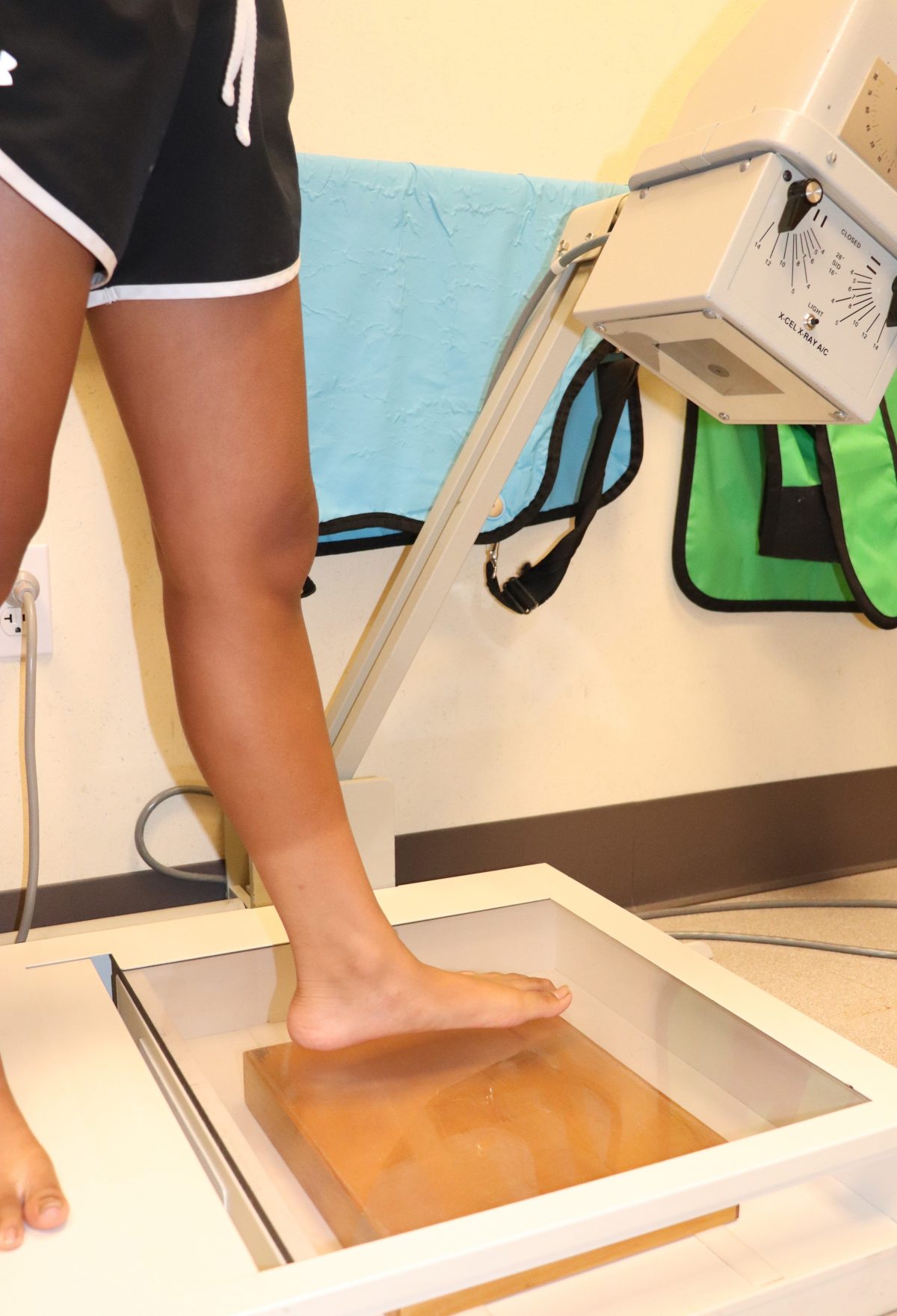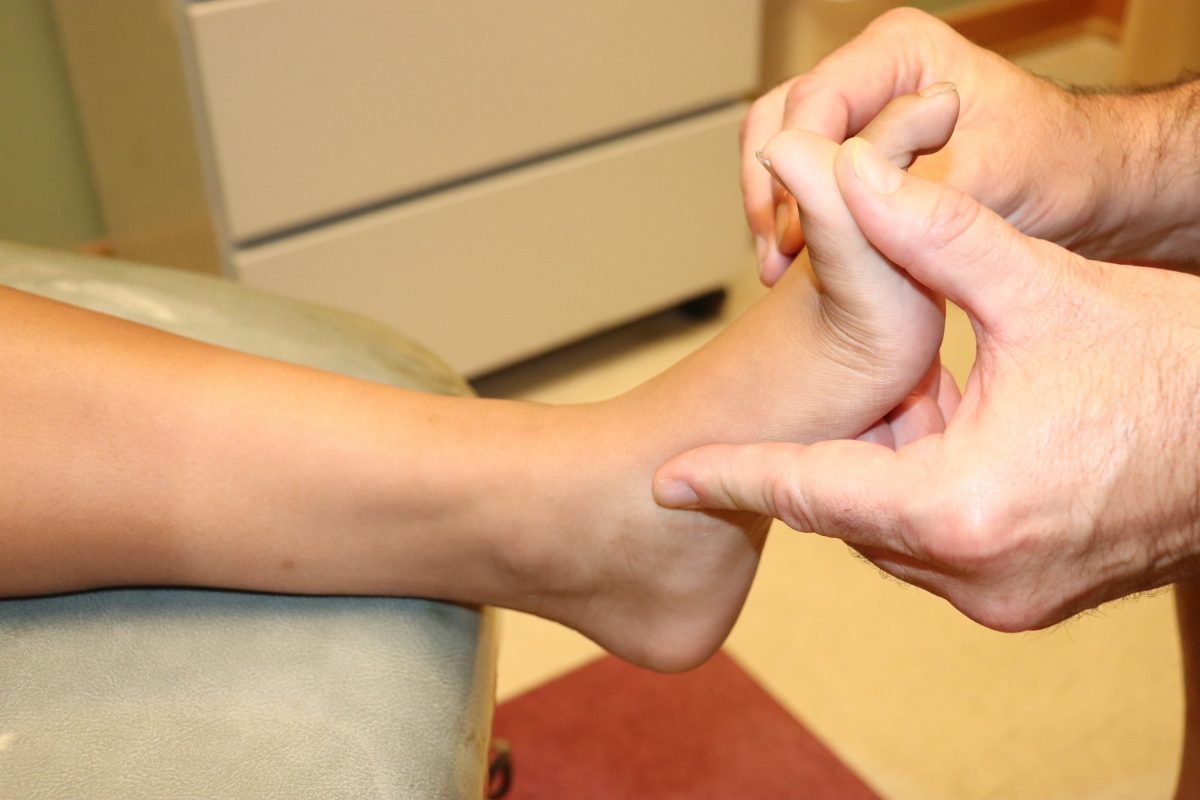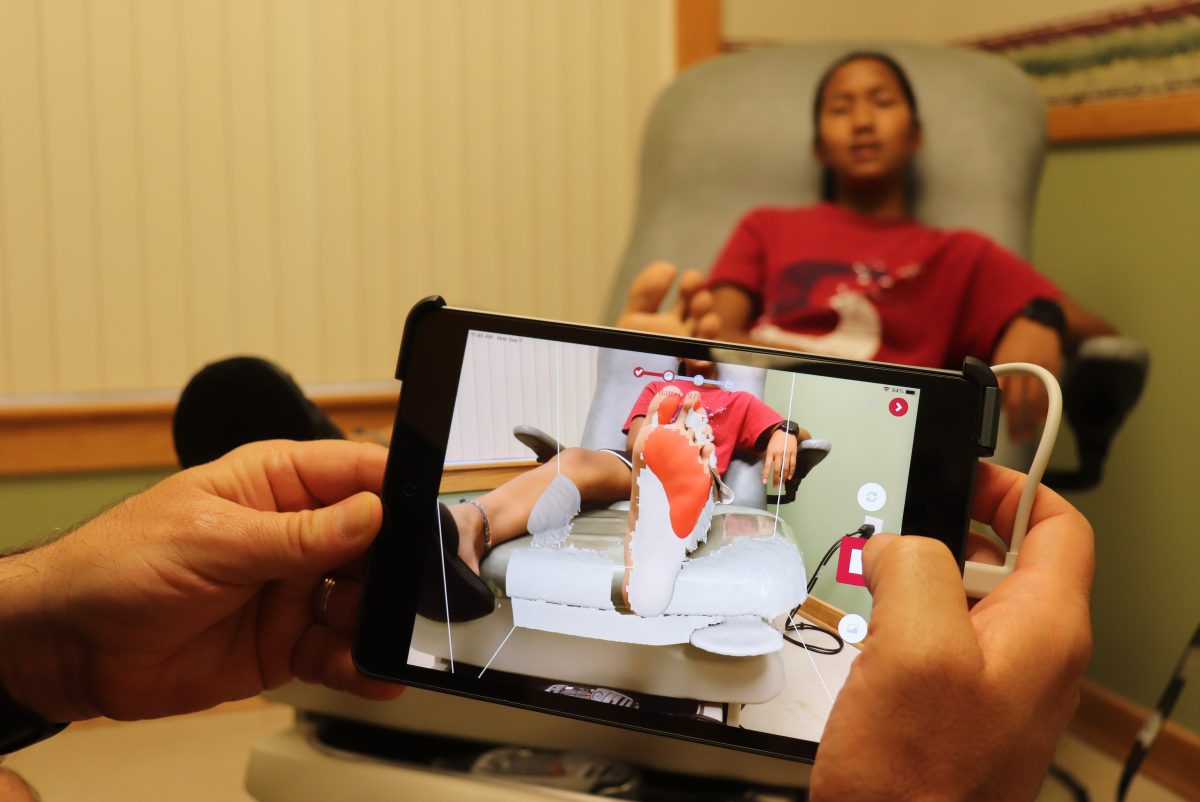Advanced Foot Care Center offers a variety of over-the-counter treatment options to save patients time and add convenience. Ask about toe pads and spacers, lotions, antifungals, wart treatments and more.
CLASSIC LIST
According to the APMA, including a podiatrist in your diabetes care can reduce the risk of lower limb amputation up to 85% and lowers the risk of hospitalization by 24%.
Patients with diabetes should see a podiatrist on a routine basis for screenings that could include evaluations of skin and nails, neuropathy and peripheral vascular disease. Podiatrists also play a key role in the prevention of diabetic ulcerations, which can include education, diabetic shoes or even correction of deformaties.
In addition to common in-office surgical procedures available at Advanced Foot Care Center, Dr. McCalla and Dr. Brodine also have surgical privileges at area hospitals and surgical centers.
Advanced Foot Care Center now offers Radial Pulse Therapy to treat foot, heel and ankle pain without injections.
These five-minute treatments deliver mechanical energy to the target area of the foot and ankle. The energy will treat area soft tissue pain, increase circulation and improve tissue tone.
Will I experience pain during treatment?
Radial Pulse Therapy creates a mechanical stress that may cause mild discomfort during treatment. Some soreness may be experienced post-treatment.
How soon can I expect pain relief after the treatment?
Most patients report some pain relief after the first treatment. However the effects are most prominent after the second or third treatment. Patients respond differently, based on their condition.
How many treatments are required, on average?
The normal number of treatments for most conditions is 3 to 5. Allow 4 to 7 days between treatments.
Ask Dr. Brodine and Dr. McCalla for more information during your appointment.
Biopsies may be performed by the doctors at Advanced Foot Care Center to assess suspicious skin lesions on the foot or ankle. The biopsied tissue is then sent off-site to an outside laboratory for diagnosis.
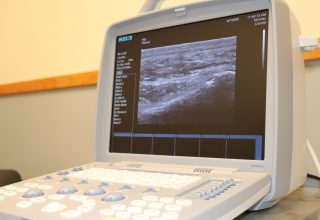 Advanced Foot Care Center has ultrasound capabilities on site. Ultrasound provides a live image of bones, ligaments and tendons. This allows our doctors to assess inflammation, sprains or tears.
Advanced Foot Care Center has ultrasound capabilities on site. Ultrasound provides a live image of bones, ligaments and tendons. This allows our doctors to assess inflammation, sprains or tears.
When using the ultrasound machine, small sound waves are used to bounce off the structures of the foot – bones, ligaments, tendons and fatty areas. The sound wave projects on screen a reflection of what it “sees” based on how thick or dense these areas are. The doctors can then assess conditions such as neuromas, plantar fasciitis or tendonitis based on the inflammation that is present and measurements that can be taken.
On-site digital x-rays save time and add convenience for patients. Our doctors can assess normal or abnormal anatomy, alignment, arthritis, injuries such as fractures, and more, without sending patients to a hospital or outside clinic for diagnosis.
When you visit Advanced Foot Care Center, Dr. McCalla and Dr. Brodine will perform a clinical exam that is appropriate for the condition for which you are being seen.
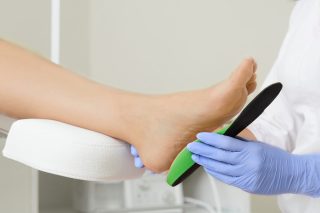
Dr. Brodine and Dr. McCalla can fit your foot with custom orthotics. Custom orthotics are specially-made devices designed to support and comfort your feet. They match the contours of your feet precisely and are designed for the way you move. Orthotics are only manufactured after a podiatrist has conducted a complete evaluation of your feet, ankles and legs so the orthotic can accommodate your unique foot structure and pathology.
Prescription orthotics are divided into two categories:
Functional orthotics are designed to control abnormal motion. They may be used to treat foot pain caused by abnormal motion; they can also be used to treat injuries such as shin splints or tendonitis. Functional orthotics are usually crafted of a semi-rigid material such as plastic or graphite.
Accommodative orthotics are softer and meant to provide additional cushioning and support. They can be used to treat diabetic foot ulcers, painful calluses on the bottom of the foot and other uncomfortable conditions.
Podiatrists use orthotics to treat foot problems such as plantar fasciitis, bursitis, diabetic foot ulcers, and foot, ankle and heel pain. Prescription orthotics last many years when cared for properly, and insurance often helps pay for these custom shoe inserts.
*Text provided by www.apma.org/orthotics
Issues with the foot and ankle can occur in very young children, adults with a lot of life experience and everyone in between. The doctors at Advanced Foot Care Center treat patients of all ages.
Patients might visit a podiatrist when they notice the arch of a foot is collapsing downward when a child is learning to walk, causing the ankle to rotate inwards. As children grow older, they might visit a podiatrist to take care of an ingrown toenail, address a sports injury or even be assessed for their ability to go en pointe in ballet.
In early adulthood, a podiatrist might see patients with athletes foot, difficulty in selecting the correct shoes or those looking to correct flat feet, high arches or injuries with prescription orthotics (shoe inserts).
As adults age, their feet begin to feel the effects of many miles of use! Patients might visit a podiatrist to correct bunions or ingrown toenails. Patients with diabetes come for regular evaluations, and arthritis can cause painful flare-ups.
Dr. McCalla and Dr. Brodine are medically trained to treat patients in all stages of life, and they look forward to addressing the needs of each person who visits the offices of Advanced Foot Care Center.

